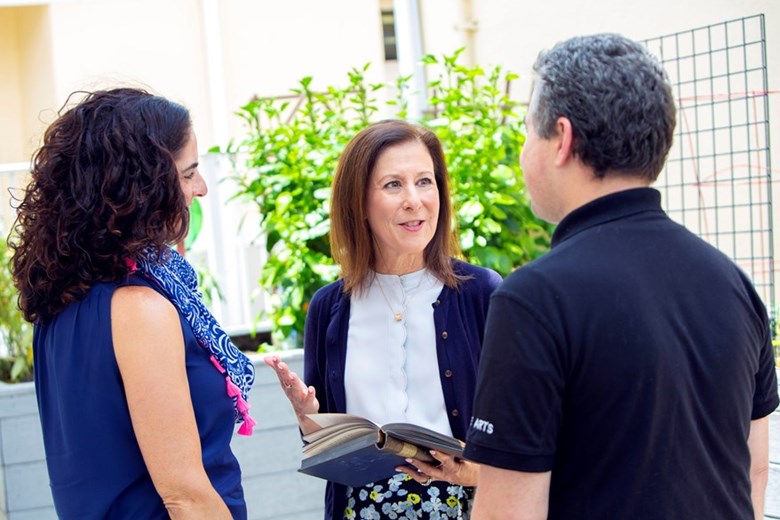Forbes: 'Creative, Flexible, Global: What Millennial Parents Want From Schools'
Recently, Forbes just conducted an interview with Dr Elise Ecoff (Nord Anglia’s Global Education Director) to ask about what Millennial parents really want from schools.
Recently, Forbes just conducted an interview with Dr Elise Ecoff (Nord Anglia’s Global Education Director) to ask about what Millennial parents really want from schools.
Millennial parents want their children to learn in schools that are creative, flexible and have a global outlook, according to research for a leading international schools provider.
And parents increasingly value soft skills and personal attitudes above proficiency in academic subjects.

Millennial parents want their children to learn in schools that are creative, flexible and have a global outlook
Millennials - now aged between their mid-20s and their 40s - have grown up in a time of rapid change and an increasingly globalized world that has shaped not only their own lives, but the sort of education they want for their children.
Given that they are the largest generation in U.S. history and will soon become the biggest parent group with school age children, international school group Nord Anglia Education undertook to try to understand what sort of education they want for their children through a series of focus groups in China, North America, the U.K. and Spain.
And the results showed a clear focus on soft skills. When asked to rate a series of qualities they would want in their child’s school, the most popular answer was enabling students to be creative and innovate.

Also highly rated by millennial parents were schools that promoted physical, emotional and mental well-being, language learning, creative learning and a ‘start-up’ mentality.
Parents wanted schools to help their children be adaptable, equip them with life skills and help them gain social and emotional skills such as the ability to manage conflict.
This does not come at the expense of academic achievement. Parents also rated schools that helped students achieve the best academic results possible.
But there is a clear emphasis on equipping children with more than just good grades.
“Millennials, like Gen X’ers and Baby Boomers, want their children to achieve great academic results. It’s just now they want far more from their child’s wider education,” says Dr Elise Ecoff, Nord Anglia’s Global Education Director.

Dr Elise Ecoff, Nord Anglia’s Global Education Director
She attributes this as a response to rapid changes in the world, from advances in technology to an increasingly globalized marketplace.
“There’s a definite shift in terms of what they want for their child’s education compared to other generations,” she says.
“Millennials want their children’s education to help them be prepared, in terms of life-skills and academics, in a future they can’t quite define yet. Creativity, well-being, resilience and a sense of purpose are top of the list of skills they want their child to develop so they’re ready for life in an uncertain world.”
While the pandemic may have amplified the importance of a well-rounded education, many schools were shifting towards these softer skills even before Covid-19 hit, Dr Ecoff says.
“It’s not enough just to be ‘book-smart’, children need to be able to work in teams, from different cultures, and develop resilience and creativity to see the ‘art of the possible’,” she adds.
Schools can help meet parents’ aspirations by taking a more personalized approach to education, adapting lessons in accordance with how a child learns best, and encouraging experimentation and finding solutions by trial and error, she says.
“Creativity in education isn’t just about the creative arts, although these disciplines do broaden students’ skills like resilience and team-work, for example,” she says. “We view creativity as encouraging students to think creatively when they’re faced with opportunities and challenges.”
As well as creativity, millennial parents want schools to help their children develop resilience, communication skills, critical thinking and an international outlook, according to the research.
And skills such as flexibility, managing conflict and basic life skills were cited more than profession or subject mastery when parents were asked to think about what their children would need in the future.

“Academic achievement will always be one of the key foundations for education, but it'll be measured in a more holistic way,”
Dr Ecoff says: “For example, alongside academic results, experiences helping students to explore, grow and think critically are already vital and that’s only going to increase.
“From our conversations with parents today, these attributes are seen as incredibly important, so their children have everything they need for life and the future workplace.”









